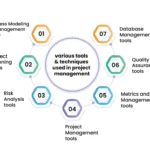Manager: Definition, Traits, and Leadership Types
A manager is typically a person in a leadership role responsible for guiding, influencing, and supporting employees to achieve both individual and organizational success. While often associated with supervising teams, managers can also act as specialists who exercise influence through expertise rather than direct authority.
What Defines a Manager?
At the core of effective management are three foundational elements:
-
Personality: A key determinant of leadership success. Emotional intelligence, communication skills, and resilience all shape a manager’s effectiveness.
-
Authority: Serves as the legitimizing basis for making decisions, assigning tasks, and managing people.
-
Willingness to perform: Internal motivation, drive, initiative, and goal orientation are essential for success in a leadership role.
Types of Managers by Behavioral Style
Managers exhibit a variety of leadership behaviors, often shaped by personality, values, and organizational culture. Below are common managerial archetypes:
-
Strict Managers
Favor authoritarian leadership. They demand respect and often value control and order over collaboration. -
Factual Managers
Rule through procedures, policies, and formal communication like memos and regulations. Bureaucratic tendencies are common. -
Lively Managers
Are charismatic and motivational but may struggle with monotony and active listening. High-energy and people-oriented. -
Critical Managers
Apply analytical scrutiny to processes and people. Often highlight inefficiencies but may struggle with accepting feedback themselves. -
Ambitious Managers
Prioritize performance over people. Mistakes are often penalized, and stress is channeled into control and dominance. -
Humane Managers
Emphasize understanding and cooperation. They value emotional well-being but may avoid conflict resolution. -
Hectic Managers
Always appear stressed and overcommitted. Although loyal to the company, they may neglect employee support. -
Confident Managers
Exhibit analytical clarity, decisiveness, and natural authority. They understand what’s feasible and lead with both confidence and precision.
The Modern Manager
In today’s complex work environments, no single leadership style fits all. Effective managers adapt their approach depending on the team, task, and organizational needs. The goal is to balance task orientation with people orientation, achieving performance through motivation, clarity, and mutual respect.
« Back to Glossary Index





![15 Employee Offboarding Templates That Save Hours of HR Time [Free Downloads] 15 Employee Offboarding Templates That Save Hours of HR Time [Free Downloads]](https://i1.wp.com/www.hrcloud.com/hubfs/Header.png?w=150&resize=150,100&ssl=1)
